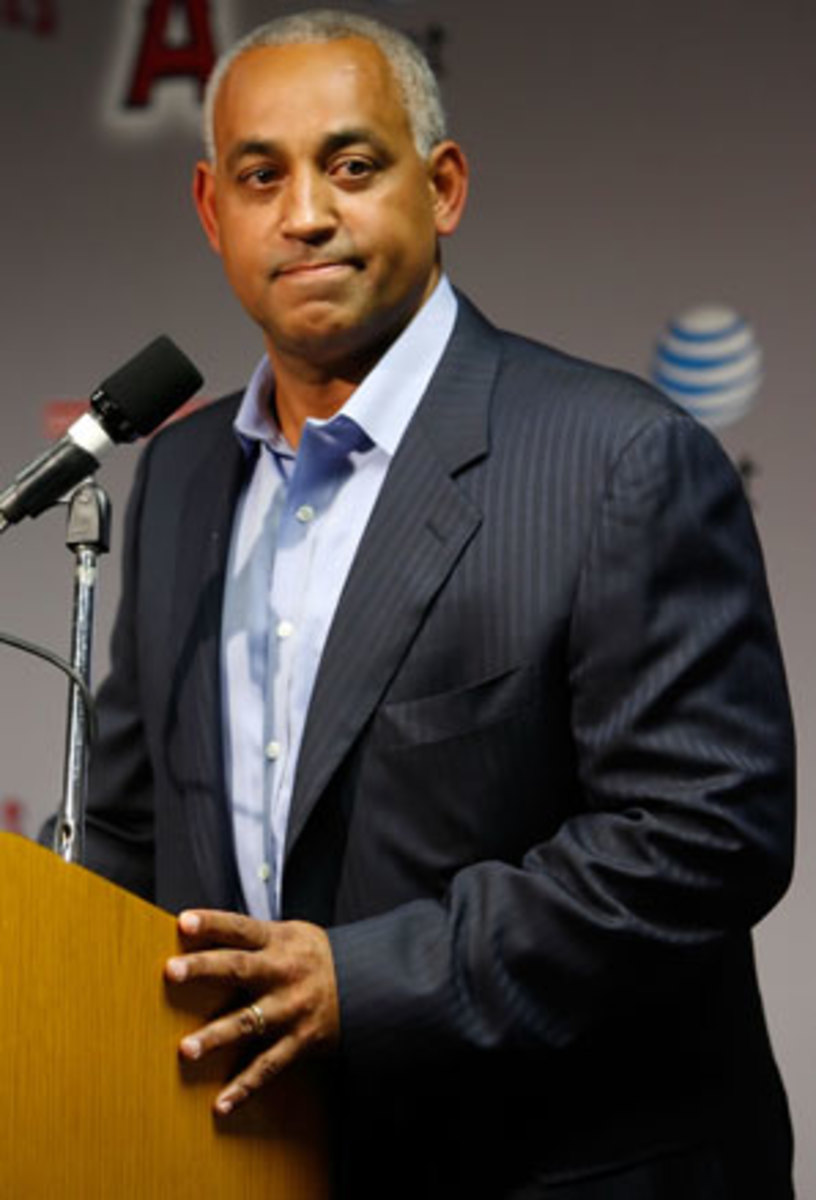
After latest misstep, it's time for Mets GM Omar Minaya to go
It has always been the belief in this precinct that media types, generally speaking, are too quick to call for leaders -- coaches, general managers, athletic directors -- to be fired. We tend to disregard the real-life implications of losing one's job, not to mention forgetting how easily a five-game winning streak can turn someone from an idiot into a genius.
For that reason, I'm usually in favor of turning down the temperature on head men on the hot seat. Short of a misdeed that's illegal, immoral or otherwise scandalous, the first instinct in this corner is usually to defend. But regrettably, New York Mets general manager Omar Minaya, with his bizarre attempt to trash the reputation of a Mets' beat writer on Monday, has finally exhausted whatever good will he once had here. In the case of Minaya, my defense rests.
It's time for Minaya to go, if not immediately then surely at season's end, because the Mets' front office has failed the "What were they thinking?" test. If an organization continually makes friends and foes ask each other that question, it's an unavoidable sign that change is necessary. In the past few years of Minaya's reign, that seems to be all anyone ever asks. We're not talking about the occasional bad trade or ill-advised signing (Oliver Perez, three years, $36 million, anyone?). We're talking about the kind of head-scratching moves that make you wonder if any semblance of common sense exists anywhere in the organization.
Consider how often Mets fans have had to wonder what Minaya and his men were thinking. They botched the firing of manager Willie Randolph last season, a move that everyone knew was inevitable, by allowing him to finish a homestand, fly across the country with the team for a West Coast road trip and win the first game of that trip before giving him his pink slip in the middle of the night. What were they thinking? After right fielder Ryan Church suffered his second concussion in a two-month span last year, they had him fly with the team from Atlanta to the high altitude of Colorado, which isn't exactly the optimal treatment for a head injury. What were they thinking?
Then came Monday, when Minaya called a press conference to announce the firing of Tony Bernazard, the hot-headed VP of player development who reportedly had, among other offenses, taken his shirt off and challenged some of the Mets minor-leaguers to a clubhouse fight. (In the chaotic Mets organization, that doesn't even seem that abnormal.) Minaya couldn't fire Bernazard and leave it at that. He told the assembled media that Adam Rubin, the New York Daily News writer who had written the damaging stories of Bernazard's behavior, had "lobbied" Mets officials for a job with the team.
Rubin, incensed at Minaya's apparent implication that he had sabotaged Bernazard in order to steal his job, called the Mets' GM "despicable," although he did acknowledge that had asked Jeff Wilpon, a member of the team's ownership group, for "career advice." Whether Rubin should have approached someone from the team he was covering for that kind of counseling is debatable. But what's not up for debate is that Minaya attempted to characterize it as a major breach of ethics, which even Wilpon admitted that is was not. Wilpon told reporters the next day that he had apologized to Rubin on behalf of the organization, and Minaya expressed regret for airing the matter at the press conference.
There are two plausible explanations for Minaya's accusations -- either he was trying to deflect attention from his own mistake-filled tenure, or he didn't fully understand the seriousness of his charges. Either case makes it painfully clear that he is out of his depth as a GM, especially in the shark-infested media waters of New York. Minaya simply isn't savvy enough or shrewd enough to be the face and voice of the franchise. When he joined the Mets TV announcers in the booth during a recent telecast, he seemed nervous and unfocused, unable to clearly articulate his assessment of the Mets' problems or their possible solutions. He was nearly incoherent at times, unable to complete one thought before starting another.
If Minaya had a history of brilliant baseball moves to fall back on, his lack of polish wouldn't be such an issue. But he has been only so-so. For every smart deal, like the one that brought the Mets the rejuvenated Jeff Francoeur recently, there is a clunker, like making a rich man out of the ridiculously inconsistent Perez.
A team like the Mets, with so many problems that frequent press conferences and attempts to reach out to the public are especially necessary, needs a leader that can step to the podium without fear of embarrassing himself or the organization. Minaya is clearly not that man. If he is still the GM by the beginning of spring training, there will only be one thing anyone can say: What were they thinking?





